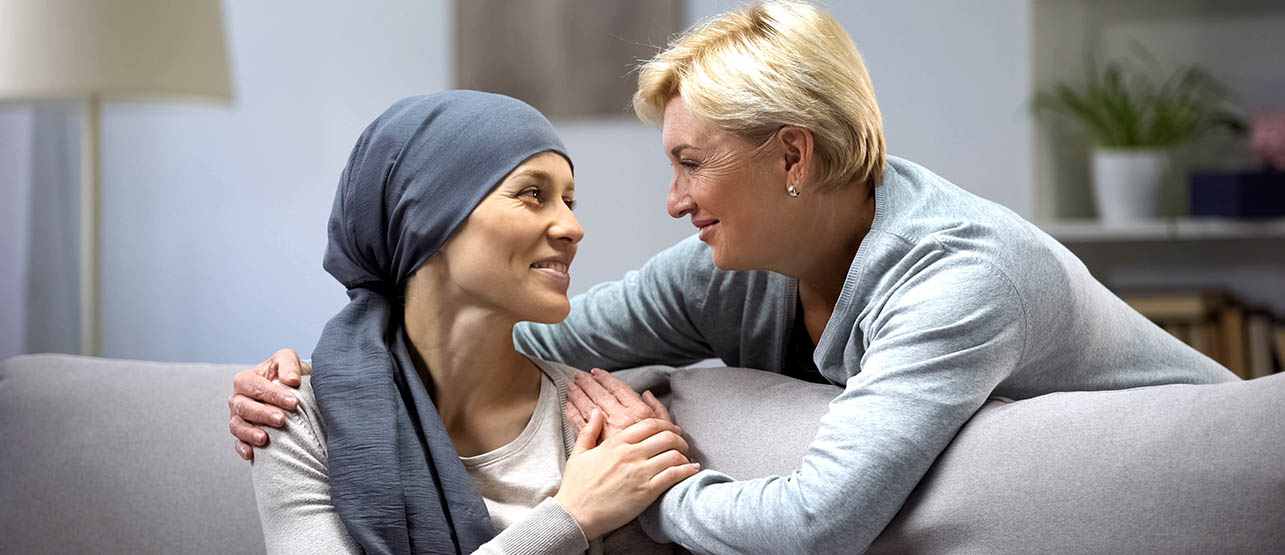Hereditary Breast Cancer

Frequently Asked Questions about Hereditary Breast Cancer
Below are some of the questions people ask about hereditary breast cancer, genetics, screening, prevention and treatment. You can read more detailed information about risk, risk-management and treatment options here.
Who is at risk for breast cancer?
Every person is at risk for breast cancer. The average lifetime risk for breast cancer in women is about 13 percent. This means that one out of every eight women will get breast cancer in their lifetime, usually after age 60. People with an in the genes listed below have a higher-than-average risk for breast cancer, often at a younger age. The risk varies based on multiple factors, including:
- age
- gender
- presence of a gene mutation
- personal and family history of cancer
- other risk factors
Can men get breast cancer?
Men (people assigned male at birth) can get breast cancer, however, the average risk for male breast cancer is very low, less than 1 percent.
People with inherited mutations in the genes listed below are at increased risk for male breast cancer.
Is breast cancer genetic?
All breast cancers are caused by damage to genes in breast cells. Most of this damage happens during the course of a person's lifetime.
Some breast cancers are hereditary. These are caused by inherited mutations that are present at birth and can be passed on from parents to their children. Genetic counseling and testing can help people learn if they are at high risk.
How do you tell if breast cancer is hereditary?
The best way to learn if breast cancer is hereditary is through genetic testing. Some of the more common signs of hereditary breast cancer include:
- multiple breast cancers in the same person
- multiple people in a family with breast cancer
- young onset breast cancer
You can read more about breast cancer genetic testing here.
Other genes may increase breast cancer risk. For some of these genes, more research is needed to prove this link.
How common is hereditary breast cancer?
About 10% of all breast cancers are caused by inherited mutations that can be passed on from parents to their childrens.
What else affects breast cancer risk?
Factors such as diet, weight, exercise, smoking, alcohol consumption, hormone exposure and environmental exposures can affect breast cancer risk in the general population and in people at high risk for cancer. More research is needed to understand how much these factors influence risk in people with inherited mutations.
What can people do to manage their breast cancer risk?
There are three main medical approaches to managing an increased breast cancer risk:
- increased screening
- medications to lower risk
- risk-reducing surgery
Each of these options comes with benefits, costs and risks. Expert guidelines for breast cancer risk management are based on your level of risk.
What type of breast cancer screening is best for high-risk people?
Experts have guidelines for screening for people at high risk for breast cancer. These guidelines differ based on a person's age, gender, lifetime risk, breast density and other factors. Visit this page for more information.
Is hereditary?
() can be hereditary. This type of breast cancer is more common in people with certain inherited mutations, especially . Other genes linked to an increased risk for include , , and . People with meet the guidelines for genetic testing. Visit this page for more information.
You can learn more about treatment options for here.
Can an change treatment options?
Yes. People with breast cancer who test positive for an may have additional treatment options. Some targeted therapies work better in people with certain mutations. Clinical trials testing new options may also be available. Visit this page for more information about breast cancer treatment options.
Screening
Screening for breast cancer uses tests to find cancer in its early stages, when it is most treatable. Finding breast cancer at an early stage increases a person’s chance of survival.
Prevention
Medications or surgery can lower breast cancer risk in high-risk women. Vaccines are being tested as part of clinical research studies.
Surgery
Mastectomy refers to the surgical removal of breast tissue to prevent or treat cancer. Learn about the benefits and risks associated with different types of surgery.
Treatment
Treatment for breast cancer depends on its stage, type, and the results of gene and tumor biomarker testing.
Genetic Testing
National guidelines outline who should consider genetic counseling and testing for an inherited mutation linked to cancer.